Oils frequently play a considerably larger role in people’s diets than they are aware of, despite the fact that we are frequently asked which oils are best for cooking. You can unintentionally be ingesting a lot of low-quality oils on a regular basis because the vast majority of packaged, processed, frozen, and deep-fried meals are all loaded with them. In general, the more natural an oil is, the more nutrition it can provide, similar to how it is with meals in general. Naturally, it’s not quite that easy because oils also have a special smoke point, or a temperature they can endure before starting to oxidize, changing their structure and releasing free radicals.
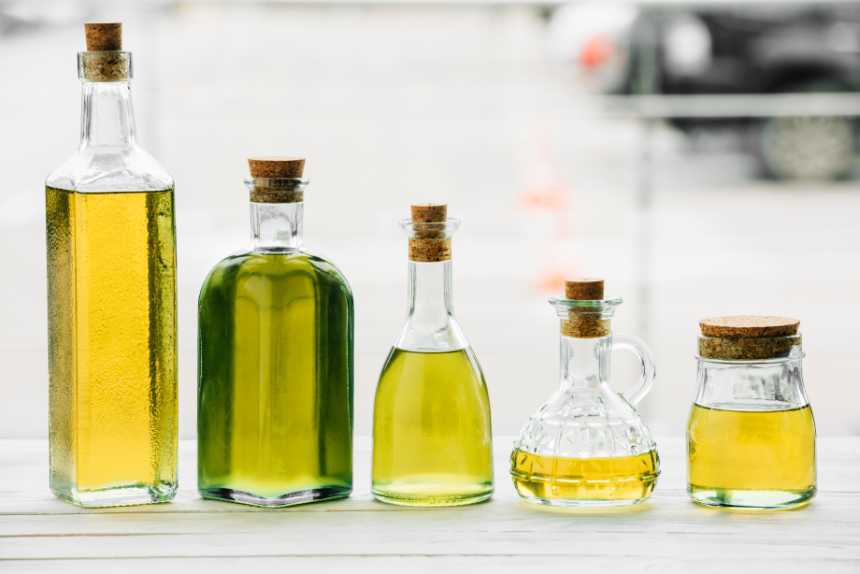
Here is guidance on which oils are better to use sparingly or not at all, which are healthier to consume, and how to serve them.
Oils to avoid
Industrial seed oils as a whole are the oils to stay away from.
- Canola (also known as rapeseed) oil
- Soybean oil
- Sunflower oil
- Safflower oil
- Corn oil
- Rice bran oil
- Cottonseed oil
- Peanut oil
These are a few of these.
Sometimes the more ambiguous term “vegetable oil” is used to describe these oils, however this just designates that it is one or more of these oils.
Industrial seed oils are frequently used in food manufacturing since they are significantly more affordable than conventional oils. These oils are highly refined; frequently, chemicals, solvents, and bleaches are used in the production process, or the oil is heated to such a high temperature that it is damaged. These oils not only promote inflammatory processes within the body, but they also raise the risk of developing insulin resistance.
They are more ubiquitous than you may realize; you may find them in a wide range of goods, including mayonnaise, crackers, long-life milks, salad dressings, candy, protein bars, and so much more. Always look at a product’s ingredient list and steer clear of or use as little as possible of anything that contains industrial seed oils. It’s also important to keep in mind that many fast food, takeaway, and restaurant chains cook with low-quality oils as well. To avoid this, check with your favourite eateries and ask, or try to limit how often you eat out.
Oils to enjoy
Here are just a few of the many oils that can be enjoyed for their health benefits:
Avocado Oil:
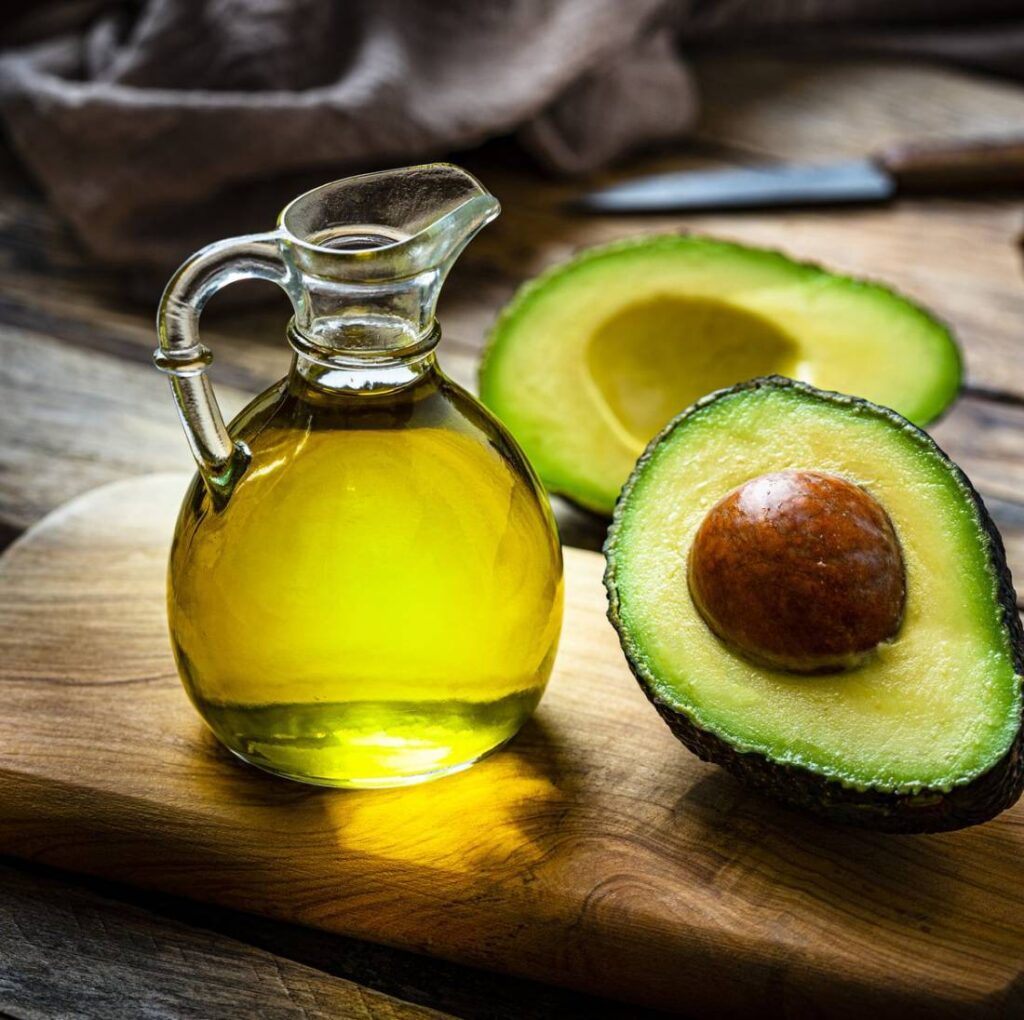
Because of its mellow, buttery flavor, avocado oil is excellent as a salad dressing, marinade, dip, or topping for vegetables. Since avocado oil has a high smoke point of about 520 degrees Fahrenheit, it can be used in high-heat culinary techniques such sautéing, frying, and grilling. The significant amount of monounsaturated fat in avocado oil is one of its key advantages. Monounsaturated fats are regarded as beneficial fats that can help lower cholesterol levels and lower the risk of heart disease.
A significant portion of avocado oil is also made up of antioxidants, such as vitamin E and carotenoids, which have a number of positive effects on heart health and can help the body fend off harmful substances like free radicals.
Extra Virgin Olive oil:
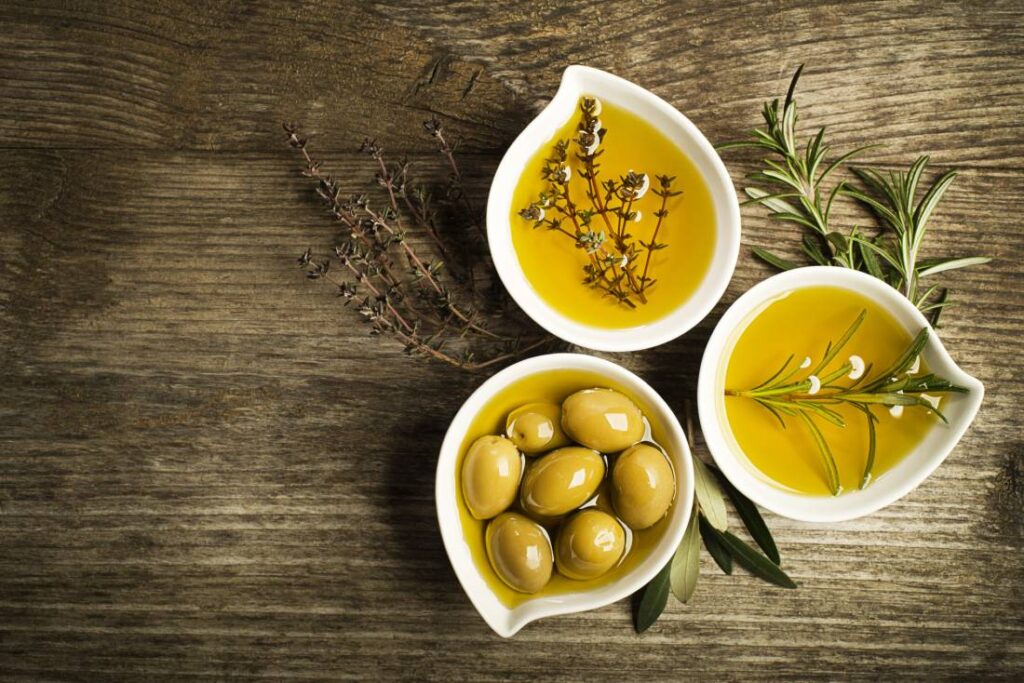
Extra virgin olive oil is a light (though certain varieties can also be flavorful) oil full of monounsaturated fats that can be used for a variety of things. It doesn’t include any chemicals or solvents and is prepared from the first cold press of mature olives. It works well to create tasty vinaigrette when combined with other herbs and vinegars and can be cooked at lower temperatures (up to about 180°C). Reduced levels of bad cholesterol and a lower risk of heart disease are both benefits of extra virgin olive oil’s monounsaturated fatty acids.
Extra virgin olive oil is a great source of antioxidants, vitamins E and K, and oleic acid, which has anti-inflammatory qualities. Extra virgin olive oil is less refined than standard olive oil and retains more of its minerals. The capacity of extra virgin olive oil to help with weight loss is another advantage. According to studies, persons who include olive oil in their diet and follow a Mediterranean lifestyle typically weigh less and have a lower body mass index (BMI) than people who eat other forms of fats. This is probably because olive oil can assist to lower overall calorie intake because it is satiating and filling oil.
Coconut oil
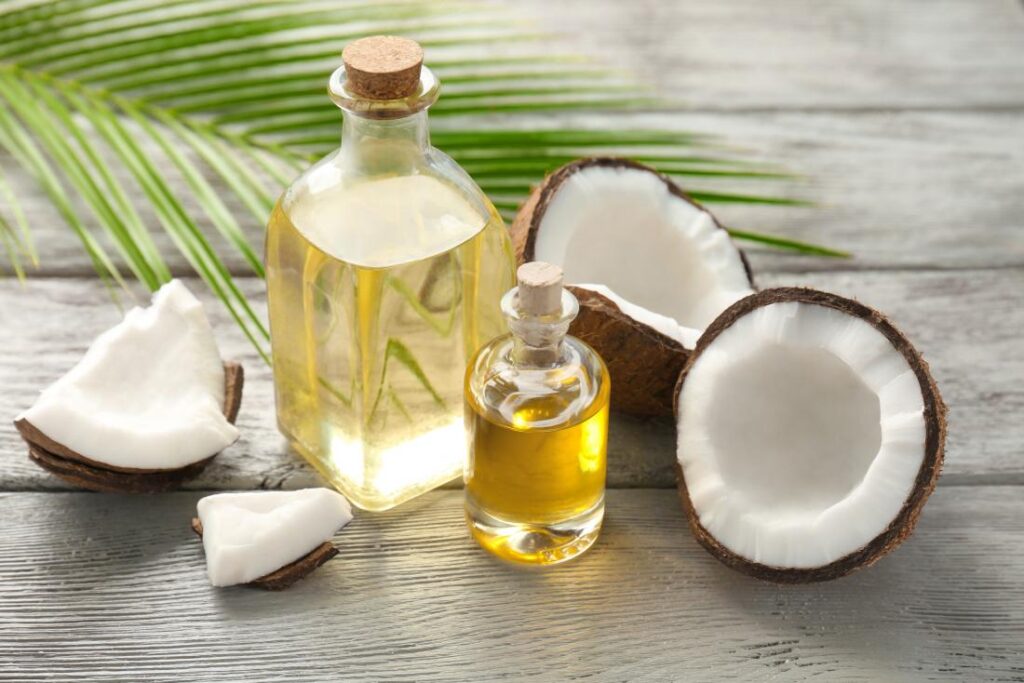
Even though coconut oil has a flavor that is rather strong, it works well in baking as a dairy-free substitute for butter and goes especially well with roasted vegetables. It can also be used as cooking oil because of its relatively high smoke point (about 175°C), albeit some meals may lose part of their flavor. MCTs (medium chain triglycerides), which the body may use as an effective energy source, and whole food saturated fats are both found in coconut oil.
By enhancing feelings of fullness and decreasing hunger, coconut oil has been demonstrated to aid with weight loss. This is brought on by the fact that coconut oil contains MCFAs, which are processed differently from other kinds of lipids. According to research, coconut oil possesses anti-inflammatory qualities that may assist to lessen inflammation in the body. People who suffer from inflammatory illnesses including arthritis, autoimmune diseases, and other ailments can benefit from this. When consumed regularly, coconut oil seems to raise the blood cholesterol levels of some individuals, but not all. Have a blood test done three months later to observe how you react if you decide to consistently include it.
Macadamia oil
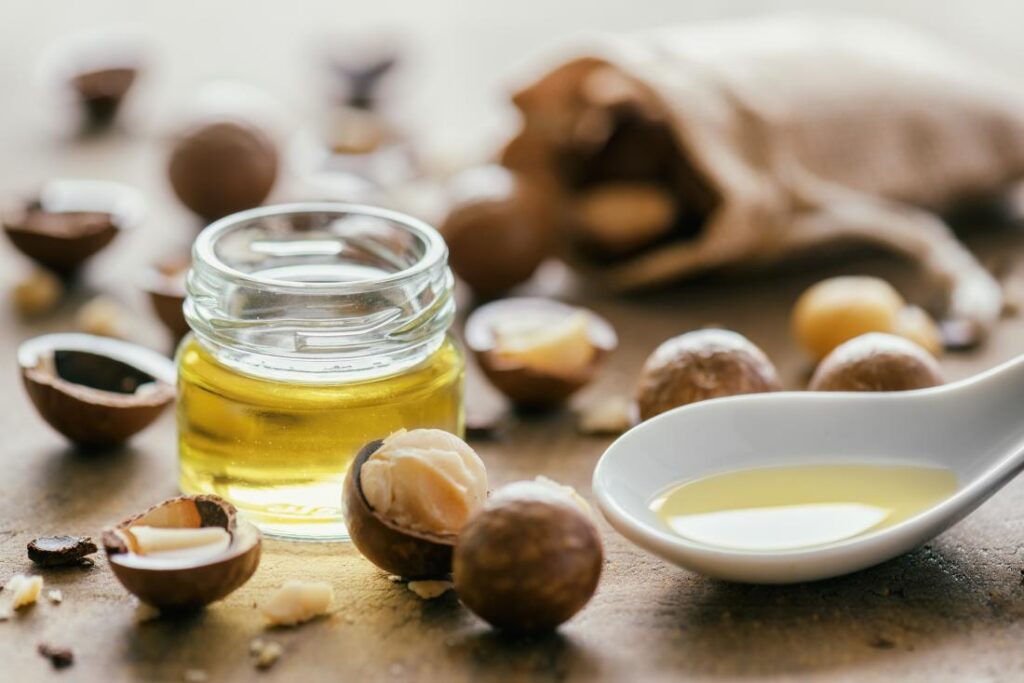
Its relatively high smoke point (210°C) and mild buttery flavor make macadamia oil good all-purpose oil (and another more mildly flavored dairy free baking addition). This oil is brimming with health advantages that can enhance your general wellbeing. Vitamin E, monounsaturated fats, and antioxidants are all abundant in macadamias. Additionally, macadamia oil contains a lot of anti-inflammatory and antioxidant properties that can help the body fend off cancer and other chronic illnesses.